1. Hanging Laundry on a Clothesline
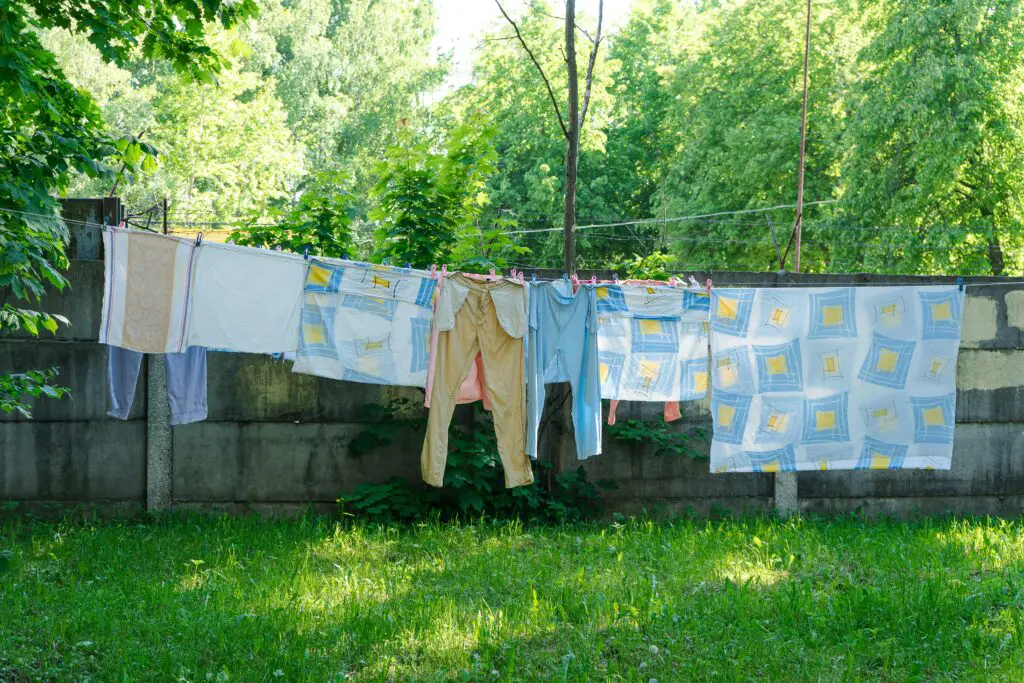
Boomers grew up in a time when dryers weren’t a household staple, and even when they became common, plenty of people stuck to the old-fashioned method of air-drying. There’s something satisfying about letting the sun and fresh air do the work for free, not to mention that it keeps clothes smelling fresh without artificial scents. Unlike energy-guzzling dryers, clotheslines don’t use a single watt of electricity, making them an eco-friendly option that has stood the test of time. Plus, line-dried clothes last longer since there’s no heat to weaken the fabric fibers. It’s a habit that might seem old-school, but it’s a simple way to reduce energy consumption without much effort says Morning Consult Pro.
A lot of younger generations have started rediscovering this trick, especially with the rising cost of utilities and the push for sustainability. Air-drying inside works too, especially with a drying rack near a window. Sure, it takes a little longer, but that’s just an excuse to be patient—a virtue boomers have in spades. And let’s be honest, skipping the dryer means fewer wrinkled clothes, which means less ironing, and that’s a win for everyone. If you’ve got space in your backyard or even a balcony, giving this habit a shot could make a bigger impact than you’d think.
2. Using Cloth Napkins Instead of Paper
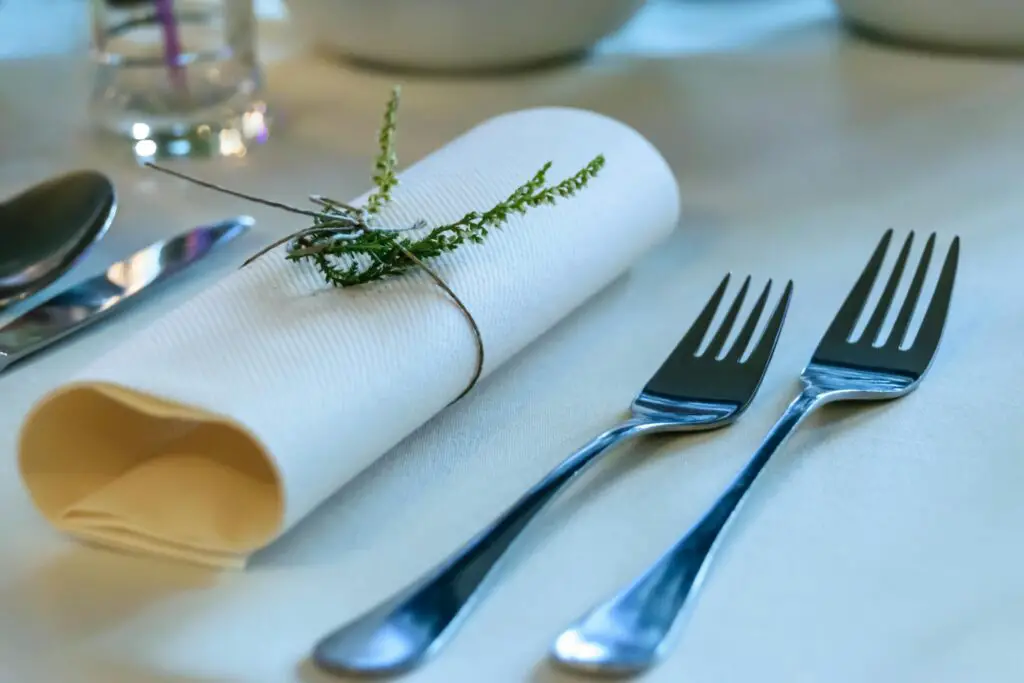
Paper napkins are one of those things people use out of convenience, but boomers grew up with the good old cloth napkin. It was normal to have a set at the dinner table, and some households even had fancy ones for guests. They last for years, cut down on waste, and add a little class to mealtime. Instead of constantly buying paper napkins that just get tossed, cloth ones are washed and reused, which is way better for the environment. Plus, they don’t tear apart mid-wipe, which is something paper napkins are notorious for adds Daily Mail.
It’s a small change that can make a big difference when you think about how much paper waste a household produces over time. Some boomers even had a habit of repurposing old shirts or towels into makeshift napkins, proving that sustainability doesn’t have to be expensive. The best part? Cloth napkins come in endless patterns and colors, making them a fun way to personalize a table setting. It’s an easy switch that brings a little nostalgia while keeping unnecessary waste out of landfills.
3. Driving Less and Walking More

Boomers didn’t always rely on cars for every little errand. It was common to walk to the store, bike to a friend’s house, or just take a casual stroll instead of driving everywhere. With gas prices lower back then, this wasn’t about saving money—it was just the way things were done. Walking and biking instead of driving not only cuts down on emissions but also keeps people active. It’s a win-win for both the environment and personal health, something boomers understood without needing a fitness tracker says the Mirror.
Nowadays, people are trying to get back into this mindset, especially with cities becoming more walkable. Choosing to walk instead of drive might take a little longer, but it’s an easy way to cut down on fuel consumption and pollution. Many boomers still prefer stretching their legs over jumping in a car for short distances, and honestly, they’re onto something. If more people embraced this habit, we’d see cleaner air, healthier communities, and fewer traffic headaches.
4. Using a Push Mower Instead of a Gas-Powered One
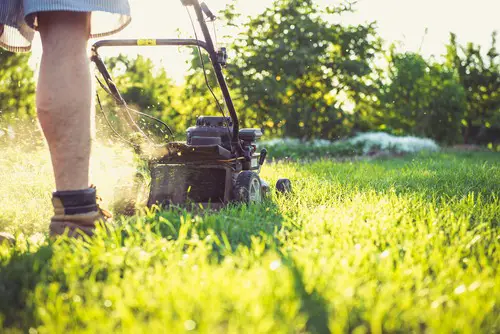
Before loud, gas-guzzling lawnmowers became the norm, push mowers were the go-to for keeping a yard tidy. They don’t use any fuel, don’t emit pollution, and provide a decent workout in the process. While they take a little more effort, they’re a quiet and eco-friendly alternative that still gets the job done. Plus, they last longer than gas-powered mowers since they don’t have complex engines that break down. Many boomers stuck with them out of habit, and in doing so, they unknowingly embraced an incredibly sustainable lawn care practice.
Now, with electric mowers becoming more popular, the concept of ditching gas-powered machines is making a comeback. But there’s still something satisfying about the simplicity of a push mower—no cords, no batteries, just old-fashioned elbow grease. They also don’t kick up nearly as much dust and debris, making them better for people with allergies. It’s a habit that proves that sometimes, the simplest solutions are the best ones.
5. Saving Glass Jars for Reuse
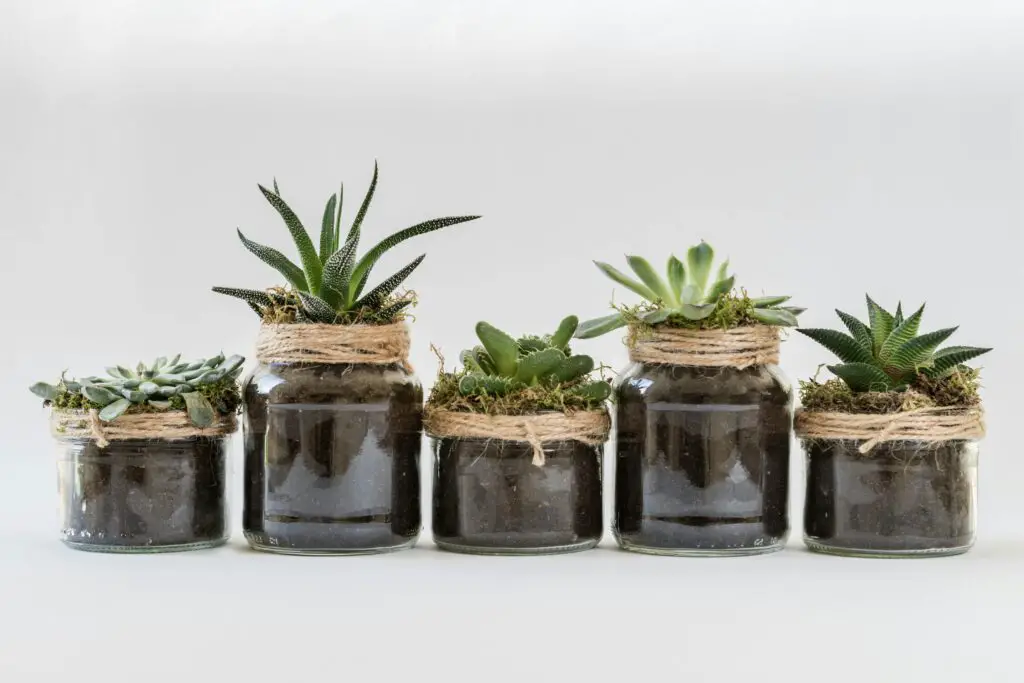
Before recycling bins were everywhere, boomers had a different approach to glass jars: they just kept them. It was completely normal to have a cupboard full of old pickle jars, pasta sauce containers, and mason jars, all waiting for a second life. They became drinking glasses, leftover storage, or even DIY craft supplies. This simple habit reduced waste long before sustainability was trendy. Plus, glass is a much better alternative to plastic since it doesn’t leach chemicals and can be reused indefinitely.
Nowadays, people are realizing that reusing jars is a great way to cut down on single-use plastics. They work just as well as plastic containers for food storage, and they don’t stain or absorb odors. Some boomers even used them for canning, keeping homemade jams, sauces, and pickles stocked year-round. It’s a habit that’s both practical and eco-friendly, making it one of those old-school tricks worth keeping alive.
6. Turning Off Lights When Leaving a Room
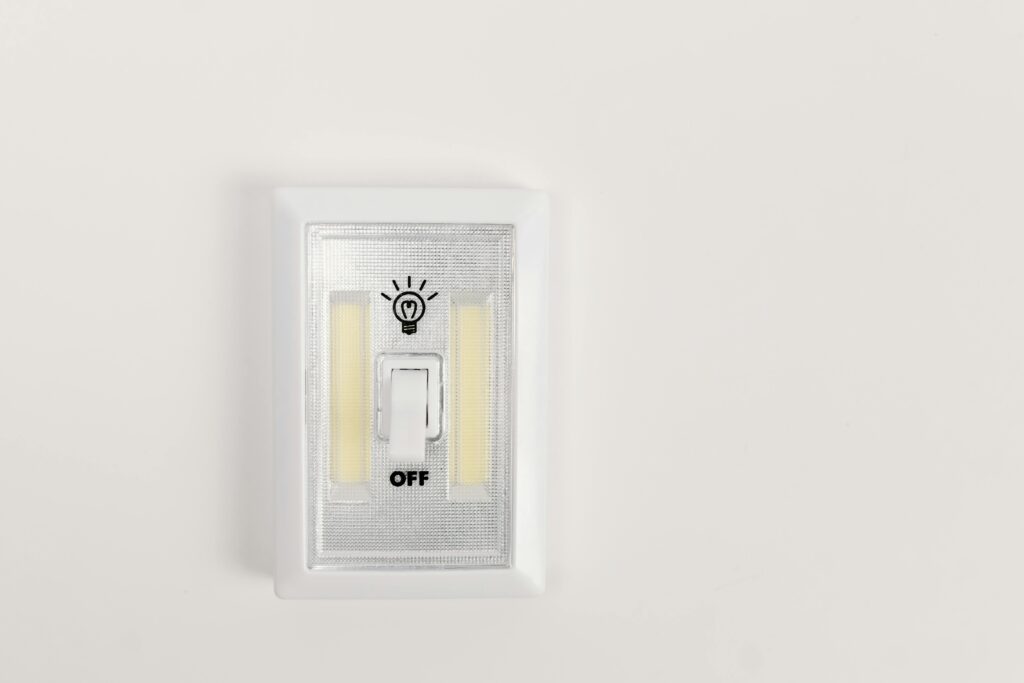
This one seems like common sense, but boomers were raised with a mindset that wasting electricity was a big no-no. Whether it was to save money or just out of habit, turning off lights when leaving a room was second nature. It’s such a simple action, yet it makes a huge difference in reducing energy consumption. Less energy used means lower electricity bills and a smaller carbon footprint, two things everyone can appreciate.
Now, with smart bulbs and energy-efficient lighting, it’s easier than ever to be mindful of electricity use. But the old-fashioned habit of just flipping a switch is still the easiest and most effective way to save power. Boomers didn’t need fancy apps to remind them—they just did it instinctively. If more people followed suit, the collective impact on energy savings would be massive.
7. Using Handkerchiefs Instead of Tissues

Back in the day, carrying a handkerchief wasn’t just a fashion statement—it was practical. Instead of constantly using disposable tissues, people had a reusable piece of cloth that lasted for years. While it might not be as common today, it’s undeniably more sustainable. Handkerchiefs cut down on paper waste and are easy to clean, making them a great alternative for anyone looking to reduce their environmental impact.
This habit is slowly coming back as people realize how much tissue waste adds up over time. A good handkerchief is softer than most tissues, and let’s be honest, it feels a bit classier to pull one out than to grab a crumpled tissue from a pocket. While it might take some getting used to, it’s a small change that aligns perfectly with a zero-waste lifestyle.
8. Growing Their Own Vegetables
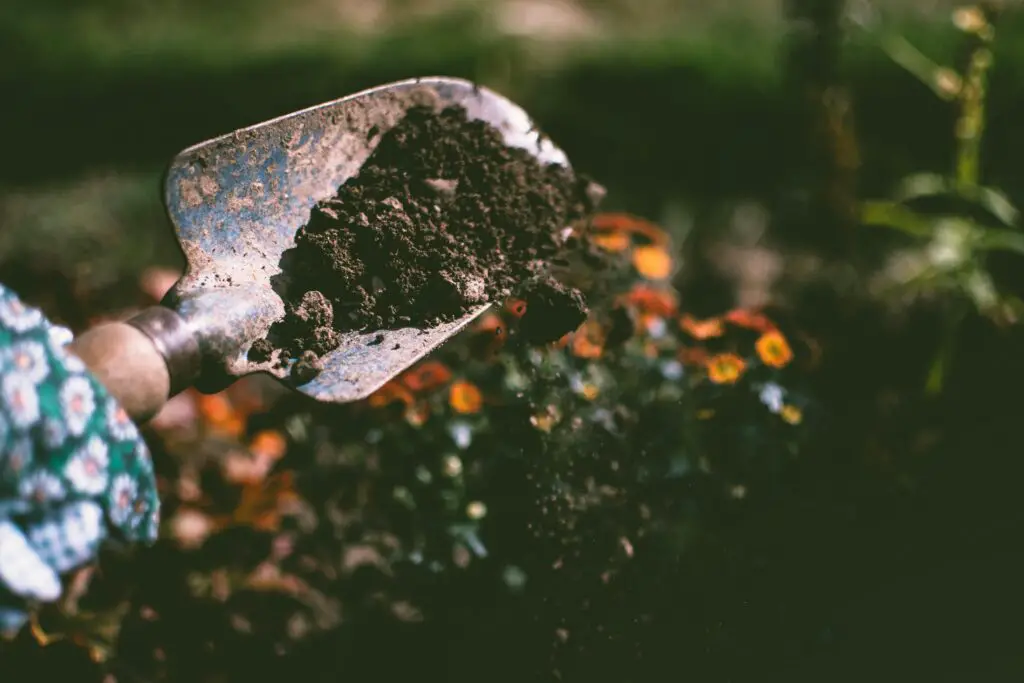
Boomers grew up in a time when backyard gardens weren’t just a hobby—they were a way of life. Whether it was a small patch of tomatoes or a full-fledged vegetable garden, growing food at home was normal. Not only did this cut down on grocery costs, but it also reduced the need for packaging and transportation, making it a naturally eco-friendly practice. Homegrown produce meant fewer pesticides, less plastic waste, and fresher, healthier food. Plus, there was a sense of pride in eating something you nurtured from a tiny seed.
Today, gardening is making a comeback, with more people realizing the benefits of growing their own food. Even those without yards are turning to container gardening or community plots. It’s a simple way to reduce reliance on store-bought produce while minimizing environmental impact. Boomers who never stopped gardening have been ahead of the sustainability curve without even trying. If more people followed their lead, we’d see a lot less food waste and a lot more delicious homegrown meals.
9. Using Bar Soap Instead of Bottled Body Wash

Before shelves were packed with endless varieties of body wash in plastic bottles, bar soap was the standard. It lasts longer, usually comes with minimal packaging, and doesn’t leave behind plastic waste. Many boomers never saw a reason to switch to liquid soap, which, in hindsight, was an incredibly sustainable choice. Bar soap also tends to have fewer unnecessary chemicals, making it a better option for both skin and the planet. Plus, some brands now offer package-free or compostable wrapping, making them even more eco-friendly.
Recently, people have started ditching body wash in favor of bar soap again, realizing that the plastic waste adds up fast. A single bar of soap can last weeks, while a bottle of body wash is often used up much faster. Boomers who never abandoned their trusty bars unknowingly embraced one of the simplest ways to cut down on waste. Sometimes, the old ways really are the best ways, and this is a perfect example.
10. Repairing Instead of Replacing
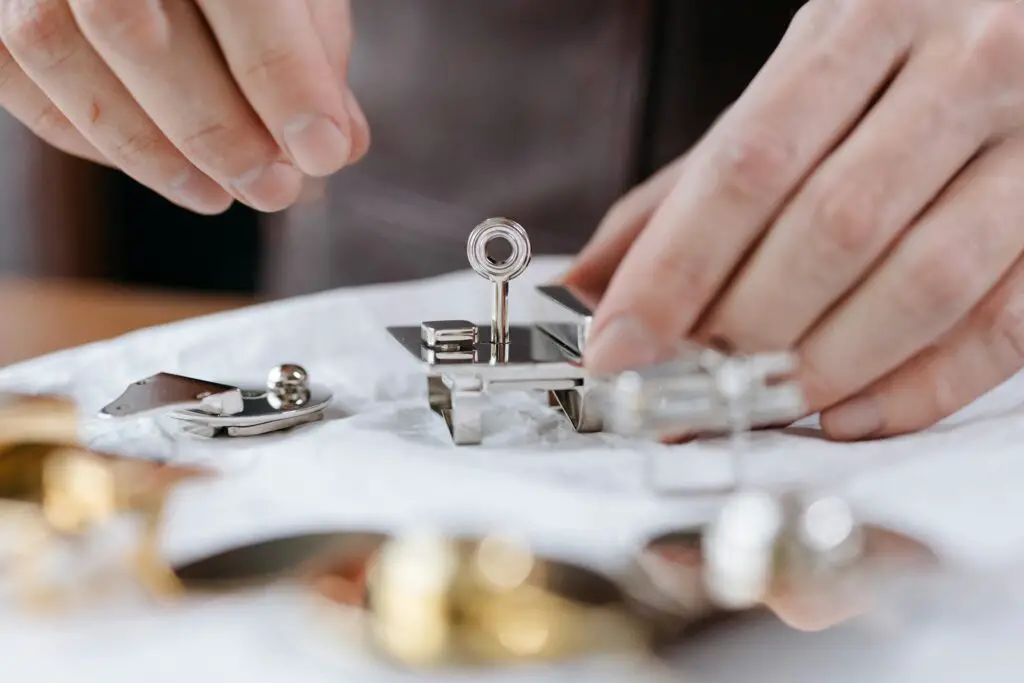
Boomers grew up in a time when if something broke, you fixed it. Whether it was sewing a ripped shirt, patching up a leaky hose, or gluing a broken chair leg, throwing things away wasn’t the first option. This mindset is a stark contrast to today’s disposable culture, where people often replace instead of repair. Fixing things not only saves money but also keeps perfectly usable items out of landfills. It’s a habit that’s both practical and sustainable, proving that a little effort goes a long way.
With the rise of DIY repair tutorials online, more people are starting to see the value in fixing things instead of tossing them. Boomers who still mend their clothes or tinker with appliances have been quietly practicing sustainability all along. This habit reduces waste, cuts down on manufacturing emissions, and keeps perfectly good items in use for longer. If more people took the time to repair instead of replace, we’d see far less waste in the world.
11. Cooking from Scratch Instead of Buying Processed Foods

Home-cooked meals were the norm for boomers, and while it may have been out of necessity, it was also an eco-friendly way to eat. Cooking from scratch means fewer processed ingredients, less packaging waste, and a lower carbon footprint. Store-bought meals often come wrapped in layers of plastic, not to mention all the transportation emissions involved in getting them to shelves. Making food at home avoids a lot of that waste while also being healthier and more cost-effective.
Now, people are starting to realize the environmental impact of pre-packaged foods and are moving back toward homemade meals. Boomers who never abandoned their cooking habits have unknowingly been leading the charge on sustainability. From baking bread to making soup from scratch, these habits reduce waste and promote mindful eating. It’s proof that sometimes, the simplest habits are the most sustainable.
12. Collecting Rainwater for Plants

Many boomers remember seeing rain barrels in backyards, collecting water for gardens and outdoor chores. Before automatic sprinkler systems, people relied on nature to water their plants, and it worked just fine. Collecting rainwater is an incredibly simple and effective way to conserve water, especially in drier climates. Instead of using treated tap water, rainwater is free, chemical-free, and better for plants. It’s a habit that not only saves money but also reduces the strain on municipal water systems.
Now, with water conservation becoming more important, people are revisiting this old-school method. Some cities even encourage residents to use rain barrels as part of water-saving initiatives. Boomers who never stopped collecting rainwater were ahead of the curve, proving that sustainable habits don’t have to be complicated. If more people adopted this practice, we’d see a significant reduction in unnecessary water waste.
13. Reusing Wrapping Paper and Gift Bags
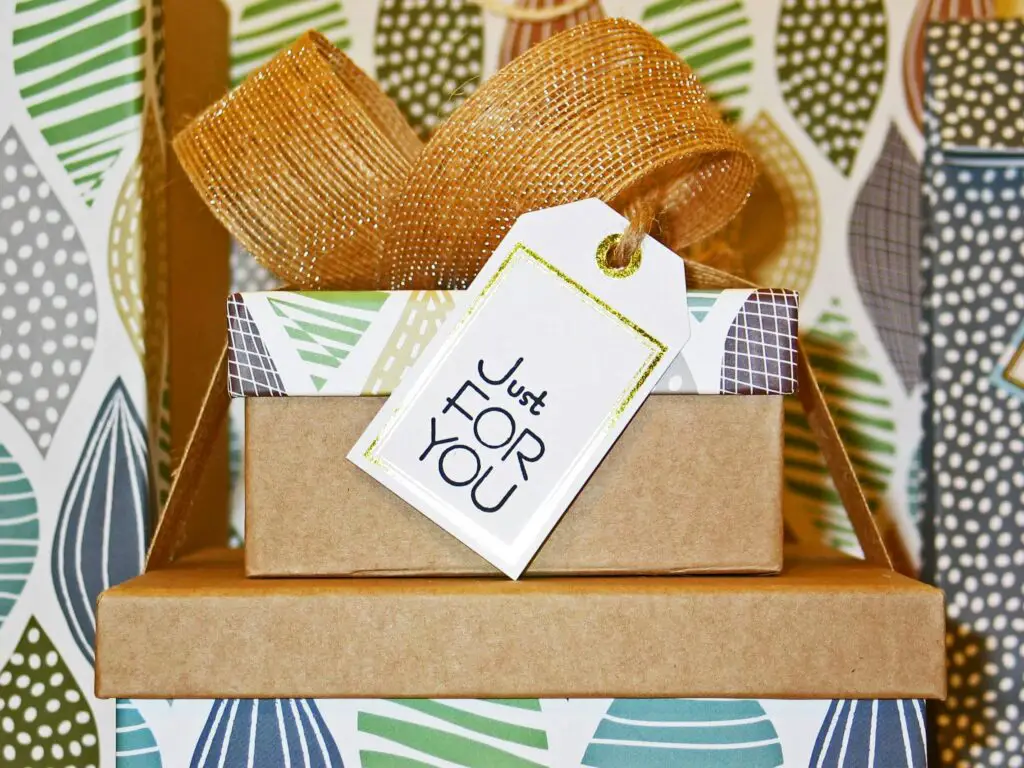
Boomers were the masters of saving gift wrap, carefully folding used paper and stashing gift bags for future use. While some might see this as frugal, it’s actually a brilliant way to cut down on waste. Wrapping paper is often tossed after one use, contributing to unnecessary landfill buildup. By reusing it, boomers unknowingly reduced waste and saved money at the same time. Gift bags, especially, can be reused multiple times without looking worse for wear.
This habit is making a comeback as people realize how wasteful single-use wrapping can be. Some are even ditching traditional wrapping paper altogether in favor of reusable fabric wraps. Boomers who have been reusing wrapping supplies for decades have been quietly practicing sustainability all along. It’s a small habit that, when multiplied across millions of households, can make a significant environmental impact.
